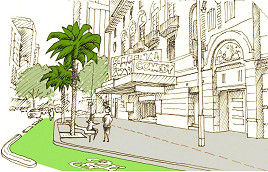Tracking high-risk COVID locations
During the recent hotel quarantine outbreaks, a new team of COVID rapid responders from Cohealth worked swiftly to identify hundreds of high-risk accommodation locations in the vicinity of exposure sites.
Cohealth’s high-risk accommodation response program works with the owners and proprietors of rooming houses, community housing, supported accommodation and hostels to protect vulnerable residents.
Many of them are located in and around the CBD, close to recent exposure sites and sites of quarantine breaches.
The team was established to provide health support, mobile COVID testing squads, COVID audits and deep cleaning to 845 high-risk, high-density accommodation properties.
The 845 properties are deemed high-risk based on two areas of assessment:
The nature of the housing (high-density, shared facilities, single entry/exits etc.); and
The age, income, social situations, language barriers and health issues of the people who live in the accommodation.
Cohealth chief executive Nicole Bartholomeusz said COVID would spread quickly if it was brought into the properties.
“We know how quickly infection can spread in high-density and shared accommodation, so a COVID outbreak in one of these 845 properties could be catastrophic,” she said.
In early February, when a worker at the Grand Hyatt hotel tested positive to COVID-19, the team sprang into action.
“Within hours of the news about the CBD hotel quarantine worker we had identified 140 high-risk properties within a 2.5km radius of the CBD hotel, and the kebab shop exposure site, and plans were in motion to support the residents,” Ms Bartholomeusz said.
“Our workers were on the phones to the owners and proprietors and attending the properties to answer questions, connect people to testing, provide care packs and new masks and work out who may have been in contact with the exposure site.”
“These are often vulnerable people who aren’t connected with daily news and government information or may not understand the implications of a new exposure site emerging.”
Ms Bartholomeusz said the quick actions were a result of months of planning.
“The program has been successful because we’ve spent months building relationships and earning the trust of the owners and managers of the 845 sites,” she said.

Council endorses office tower at Flinders Lane despite querying car park demolition




 Download the Latest Edition
Download the Latest Edition